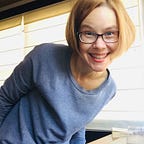How Cheese Is Like Rent
I don’t know if you’re the kind of person who follows our ever-changing nutritional guidelines—this morning, for example, theSkimm reported that sugar was out and eggs were back—but you’d probably be very interested in FiveThirtyEight’s recent article, “You Can’t Trust What You Read About Nutrition.”
Not because you didn’t know that you can’t always trust what you read about nutrition. You already knew that.
And not because FiveThirtyEight reports that, when their three-person sample team took the Food Frequency Questionnaire, they discovered:
- It was overwhelmingly difficult to accurately calculate what—and how much—they were eating.
- Everyone on the team seemed to have completely different caloric requirements.
You probably already knew that too, even though the rest of the world would like you to believe that it’s all calories in, calories out, don’t eat more than 2,000! As FiveThirtyEight’s Christie Aschwanden writes:
Could these results be correct? Anna [Barry-Jester] and I are virtually the same height and weight; we could probably share clothes. How could I eat more than twice the calories she does?
But after you read the entire article, you’ll learn one important fact, so outstanding that it overwhelms everything else in the piece:
All three of the subjects learned that their top source of calories came from cheese.
This is different from saying that the majority of their calories came from cheese, let’s be clear on that; it’s more like if they were apportioning their calories like money, they’d pay a big premium to cheese before they ever got the chance to buy anything else.
Because cheese—as anyone with a nutrition app will quickly discover—is ridiculously high in calories.
One ounce of Tillamook Medium Cheddar Cheese, for example, runs at 110 calories. An ounce of cheese is roughly equivalent to one cubic inch, so take a look at the space between the tip of your thumb and the first knuckle and cube that. I put that much cheese into my mouth at once.
Which means cheese is the rent of foods. It’s a big staple in many of our diets, it’s something that makes life better for a lot of us, and it takes way too much of our available resources.
Can you imagine how many donuts I could eat, if I wasn’t eating cheese? One Krispy Kreme Original Glazed Donut contains 190 calories. I could eat two donuts for the amount of cheese it takes to cover my thumb and come out ahead.
I could have two donuts, every day, for the rest of my life, if I wasn’t paying rent. Sorry. I mean “eating cheese.”
Of course, a lot of us eat cheese because it’s a less expensive source of protein than, say, a free-range steak. (Or even a non-free-range steak.) According to Calorie King, there are 227 calories in four ounces of pan-fried steak. If I could afford steak at every meal, I could eat four times as much steak as cheese for half the calories, and I’d get to pan-fry it!
(The steak is a metaphor for homeownership. We understand this, right?)
Or I could save those calories, and have my body burn them off my butt instead. That’s not always how it works, of course—if you’re not eating cheese, you’re probably eating something else, like student loan payments—but sure, if you gave up cheese forever you might have a slightly smaller body, which our culture argues is the goal we should all be trying for. Nobody’s body is small enough and nobody’s retirement fund is large enough, after all.
There are also people who can’t eat cheese. We often pretend those people don’t exist—or, at best, ignore their concerns. (“Why don’t they just get a job and also take Lactaid?”)
But cheese is not going anywhere. It is literally baked into our lives.
So what do we do? If we’re watching our figures (financial and otherwise), we might have to consume a little less of everything else just so our lives can have cheese in it.
Or we can follow our gut instinct, consume what feels right to us at this moment in time, and trust that it’ll all work out in the end.
Because—and I know some of you will agree with me on this—cheese tastes like home.
